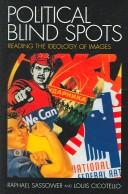| Listing 1 - 5 of 5 |
Sort by
|
Book
ISBN: 1317493729 1317493737 1315712032 1282943308 9786612943300 184465379X 9781844653799 9781317493730 1844650669 9781844650668 9781315712031 9781282943308 6612943300 9781317493723 1844650669 9781844650668 1844650677 9781844650675 Year: 2006 Publisher: Durham : Acumen Publishing,
Abstract | Keywords | Export | Availability | Bookmark
 Loading...
Loading...Choose an application
- Reference Manager
- EndNote
- RefWorks (Direct export to RefWorks)
Most commentators think of Karl Popper and his intellectual legacy primarily in terms of his philosophy of science, while some recall his political philosophy. In Popper's Legacy, Raphael Sassower foregrounds Popper's political and economic ideas and relates them to his methodology of science, showing along the way the ideological convictions they provide. The primacy of Popper's ideological convictions and the context that gave rise to them are used as a springboard to understanding his revolutionary impact on the late twentieth century and his continued influence today. Neither biographical nor scholarly in the traditional sense, Sassower's analysis is more a cultural critique that incorporates the relevant elements in Popper's life and writings and the circumstances under which some books and essays were rejected or well received. By examining Popper in the round, and in particular his moral and psychological insights, Popper's Legacy presents an account and evaluation of Popper's thought that both his critics and acolytes will find fascinating.
Philosophy and science. --- Popper, Karl R. --- Influence. --- Criticism and interpretation.

ISBN: 9780739112618 Year: 2006 Publisher: Lanham (Md) Lexington Books
Abstract | Keywords | Export | Availability | Bookmark
 Loading...
Loading...Choose an application
- Reference Manager
- EndNote
- RefWorks (Direct export to RefWorks)
Book
ISBN: 9783030605735 9783030605759 Year: 2020 Publisher: Cham Springer International Publishing :Imprint: Palgrave Macmillan
Abstract | Keywords | Export | Availability | Bookmark
 Loading...
Loading...Choose an application
- Reference Manager
- EndNote
- RefWorks (Direct export to RefWorks)
Philosophy --- Philosophy and psychology of culture --- Political philosophy. Social philosophy --- General ethics --- Social psychology --- Sociology --- psychologie --- sociologie --- cultuur --- politieke filosofie --- sociale filosofie
Book
ISBN: 9783319908267 Year: 2019 Publisher: Cham Springer International Publishing :Imprint: Palgrave Macmillan
Abstract | Keywords | Export | Availability | Bookmark
 Loading...
Loading...Choose an application
- Reference Manager
- EndNote
- RefWorks (Direct export to RefWorks)
Science --- Political philosophy. Social philosophy --- Philosophy of science --- Sociology of culture --- Sociology --- sociologie --- cultuur --- onderzoeksmethoden --- sociale filosofie --- wetenschapsfilosofie
Book
ISBN: 1844653978 1844651061 1317493184 1282943448 9786612943447 1315711850 1317493192 9781844653973 9781317493198 9781844651054 1844651053 9781844651061 Year: 2007 Publisher: Durham : Acumen Publishing,
Abstract | Keywords | Export | Availability | Bookmark
 Loading...
Loading...Choose an application
- Reference Manager
- EndNote
- RefWorks (Direct export to RefWorks)
Ethical Choices in Contemporary Medicine examines the epistemological foundations of medicine to show that many of todays bioethical problems have their roots in how medical knowledge is established, evaluated and transmitted. These epistemological concerns frame the medical choices and claims we make, from how medical responsibility is sanctioned to how medical care is allocated. The present predicaments of medicine are examined within a broad cultural context that exposes the expectations individuals have of their health-care providers and of themselves. The authors explore some of the historical roots of these concerns and suggest that rational discourse and parochial ethical dialogue may be futile in the face of competing and incommensurable frameworks, attitudes and wishes. The authors show that, in the postmodern age, two interrelated issues surface when it comes to medicine. On the one hand, there is a strong critique of science and the privileges associated with the scientific discourse and, on the other, there is still a deep-seated quest for certainty in all medical matters. Ethical Choices in Contemporary Medicine investigates the fundamental nature of medicine and medical knowledge in health-care provision today and offers a radical and practical rethinking of medical ethics. It will be required reading for philosophers of medicine and will be of interest to those working in bioethics, sociology of medicine and philosophy of science more generally, as well as to health-care practitioners interested in the foundational issues of their discipline.
| Listing 1 - 5 of 5 |
Sort by
|

 Search
Search Feedback
Feedback About UniCat
About UniCat  Help
Help News
News